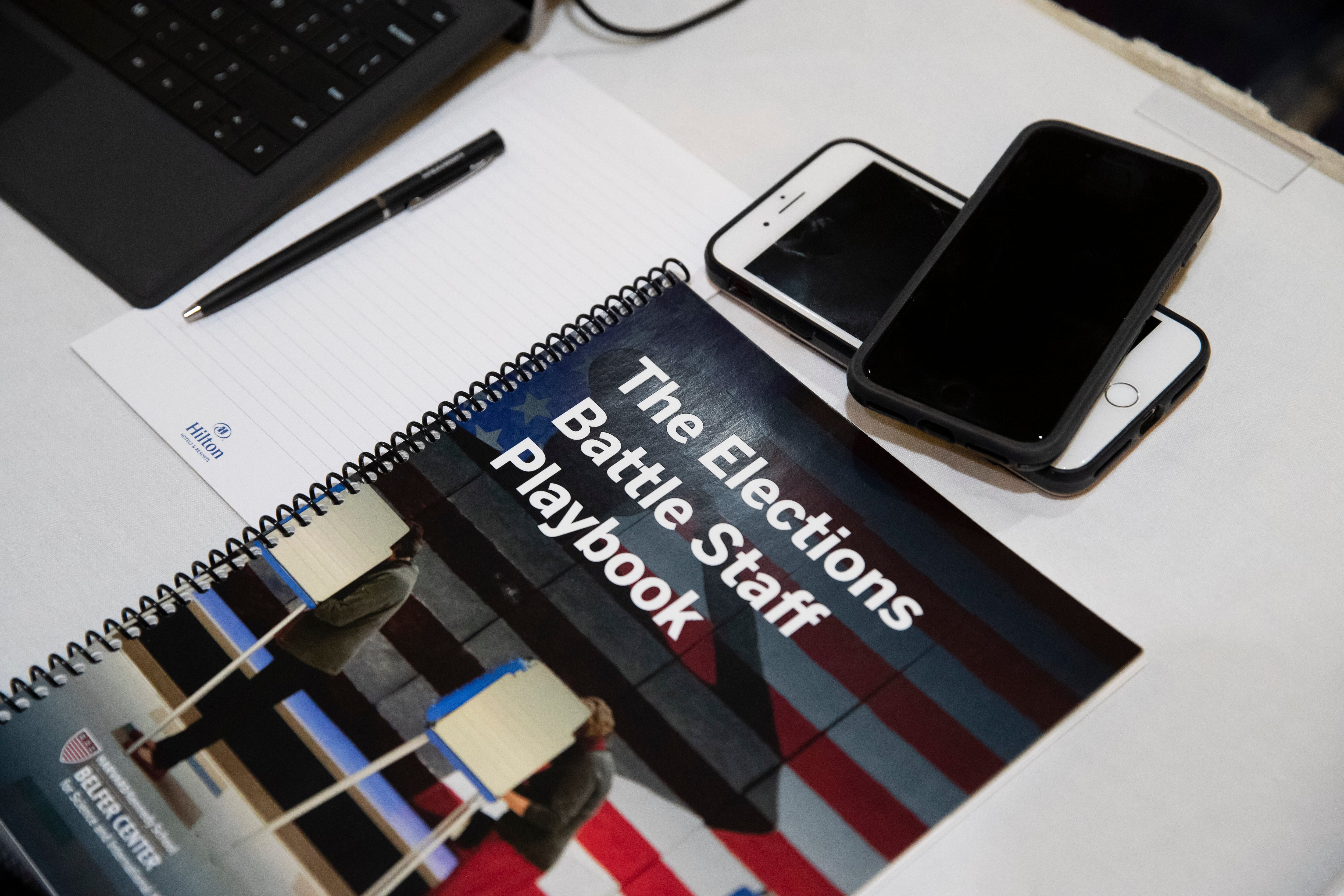In a public service announcement that first aired Tuesday, local election officials and retired military officers urge Americans to not interfere in the voting process or engage in political violence this Election Day.
The Committee for Safe and Secure Elections created the PSA in response to increased threats against election officials leading up to the presidential election on Nov. 5.
Violent threats have been on the rise since 2020, when former President Donald Trump began criticizing the people who administer elections and making unsubstantiated claims of fraud.
In the PSA, retired Army Lt. Gen. Ronald Burgess and retired Air Force Brig. Gen. Marty France urge the U.S. population to not give into the false rhetoric about elections being unfair.
“I would say to voters as we look at the current environment we find ourselves in, we are a nation of values, we are a nation of laws. And we need to allow our election officials to do their jobs,” said Burgess, a former director of the Defense Intelligence Agency.
A Brennan Center poll of election officials found in May that 38% of officials had experienced threats, harassment or abuse for doing their jobs.
Widespread threats prompted the Justice Department to establish an Election Threats Task Force in 2021, and on Monday the department announced it would set up a special hotline for people to report harassment or other types of voting interference. The hotline — (888) 636-6596 — will become available Saturday and remain open until Nov. 8.
Carly Koppes, the county clerk and record in Weld County, Colorado, is one of two election officials who participated in the PSA. Koppes has been working local elections for 20 years, and November will mark her sixth presidential election.
“The atmosphere going into this one is definitely more heightened and intense,” Koppes told Military Times.
Before 2020, Koppes didn’t hear from many people who were curious about how elections work. But in the four years since, she’s engaged in thousands of one-on-one conversations, group presentations and tours to try to alleviate concerns and push back against incorrect claims, she said. Most of the time, the conversations are successful in giving people renewed trust in the voting process, she added.
Koppes hopes her participation in the PSA will help remind Americans that election workers are people who live in the communities where they work, and not “somebody behind a curtain pulling strings.”
It helps to have the public support of veterans, she said, because they’re widely perceived as trusted and respectable. Koppes’ husband is a veteran, and several veterans volunteer to work the polls in her county, she said.
“It really gives me an extra boost in my backbone to stand firm against all of this, and to be able to know I have some extremely high integrity, strong people that are supporting me in my role,” Koppes said. “I feel very appreciative for the veterans who have decided to come out and support us, because I do believe veterans voices are some of the most respected in our society.”
RELATED

One of the veterans in the PSA, Gen. France, said in the video, “Condoning, inciting or participating in political violence is really the threshold between a free and fair democracy and authoritarianism. Attacking and threatening election officials and their families happens in war-torn countries, not America.”
France was motivated to become involved after seeing the attacks on election workers following the 2020 presidential election, he told Military Times.
“If nothing else, I did this out of empathy and support for the election officials that are doing such a difficult job, made more difficult by extremists who think it’s their role to intimidate and even harass them,” France said.
Service members’ oaths to the Constitution should extend after their military service and include defending the country’s democratic institutions, France added.
He encouraged other veterans to help and suggested they start by talking to their friends and families about their news consumption. Academics warned this summer that a proliferation of websites were mimicking the appearance of real news organizations and targeting U.S. voters with disinformation.
One Iranian-linked website was discovered earlier this month to be attempting to stir up antidemocratic sentiments among veteran voters, specifically.
“Anything I can do to tone down the rhetoric concerning election officials and the threats against them — anything I can do to help support the validity of safe and secure elections — I want to do,” France said. “This should not be a partisan issue. Our elections are safe, they are secure, and we can’t allow doubt and intimidation to creep into the process.”
This story was produced in partnership with Military Veterans in Journalism. Please send tips to [email protected].
Nikki Wentling covers disinformation and extremism for Military Times. She’s reported on veterans and military communities for eight years and has also covered technology, politics, health care and crime. Her work has earned multiple honors from the National Coalition for Homeless Veterans, the Arkansas Associated Press Managing Editors and others.
Read the full article here
